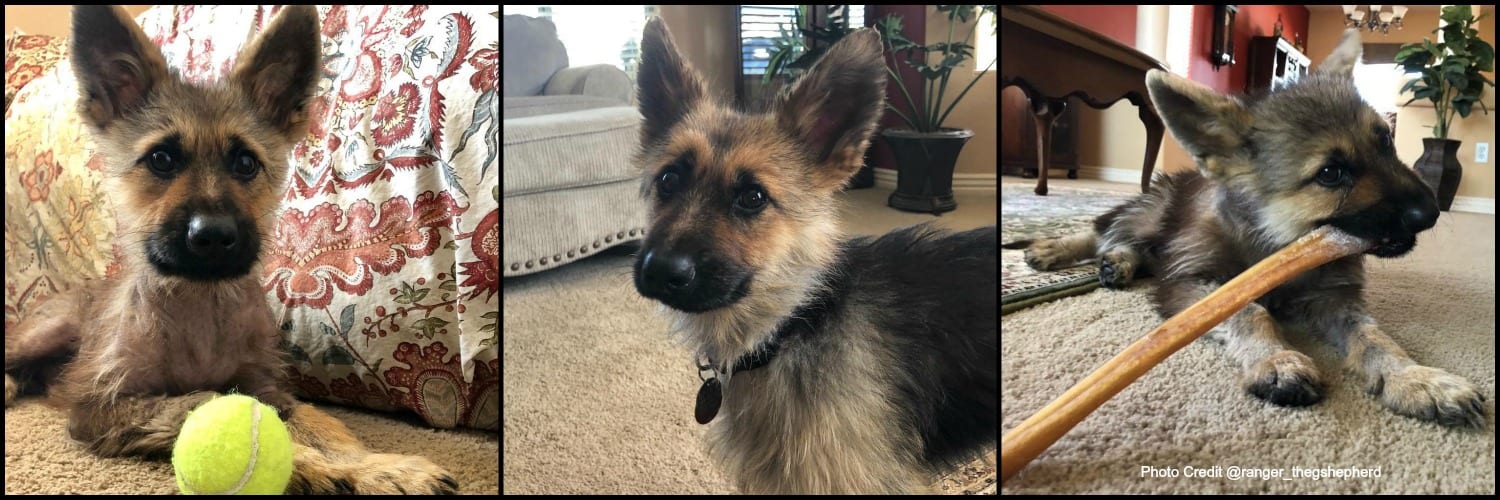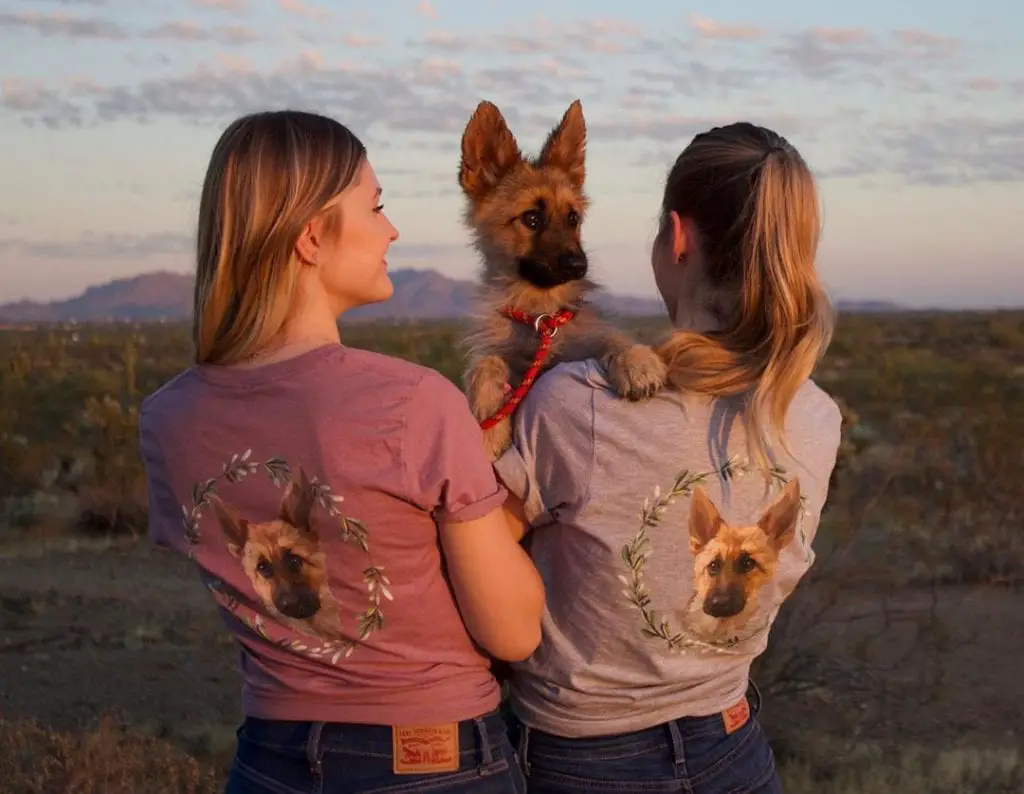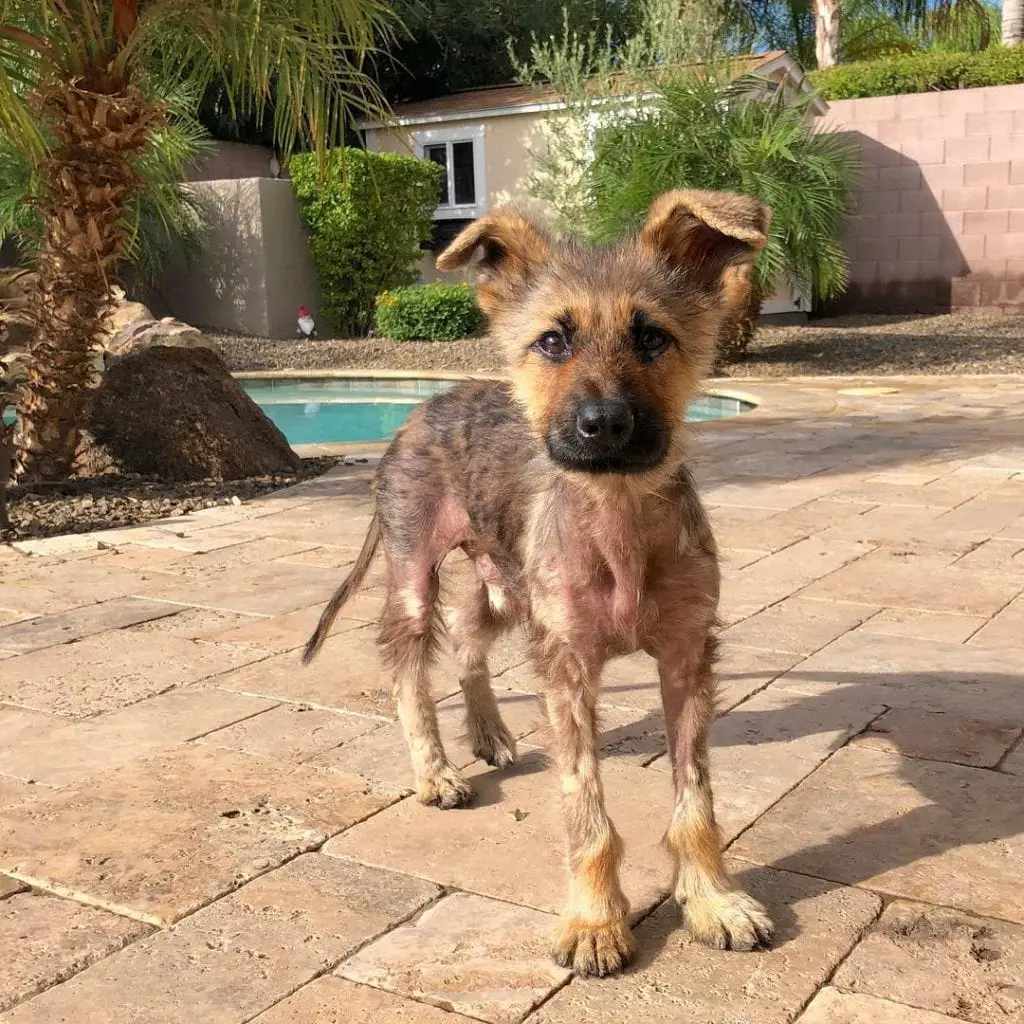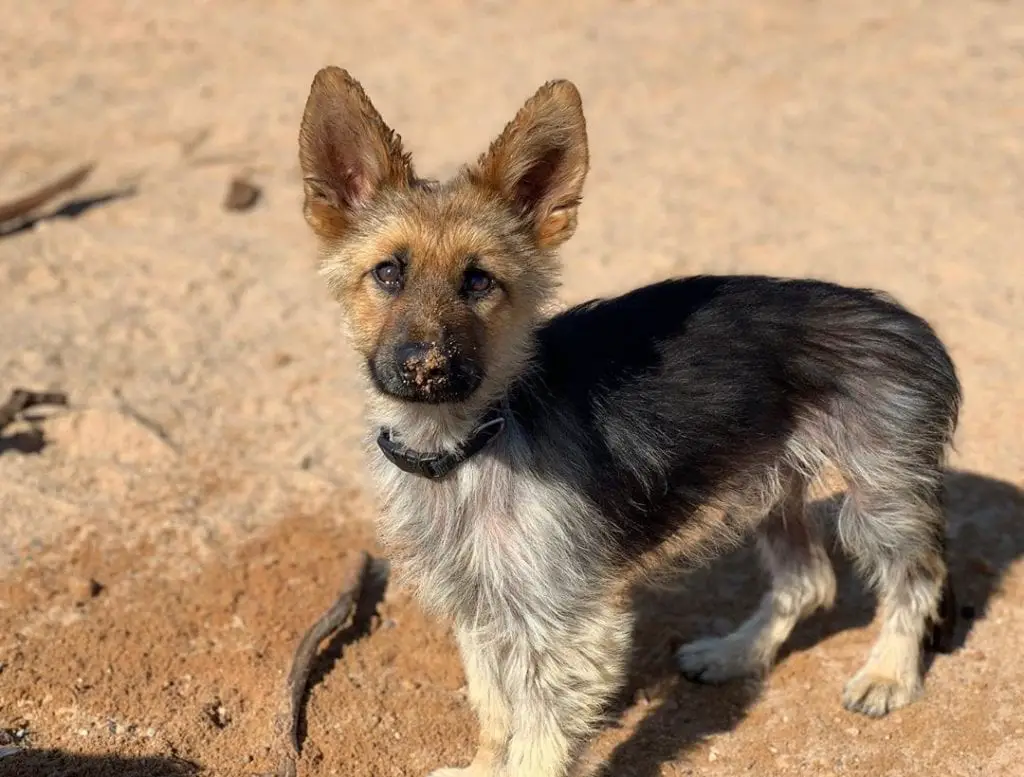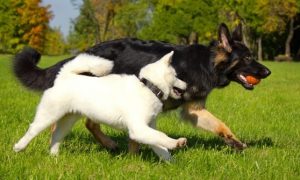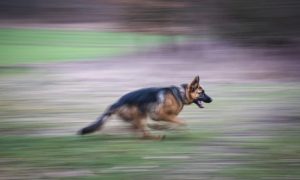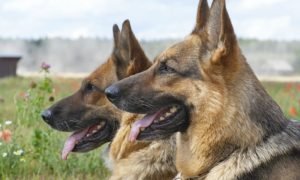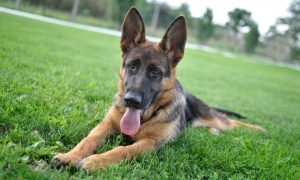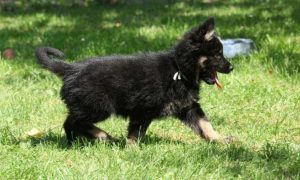Large breed puppies are cute and cuddly, but they get big fast. Ever wish your puppy could stay puppy-sized forever? That’s precisely what happened to Ranger, the German Shepherd, who is over two years old and weighs in around fifteen pounds.
Ranger is loving, energetic, and according to his owners, “very talkative” German Shepherd, who will look like a puppy for life.
Ranger has “pituitary dwarfism,” a genetic condition that primarily affects German Shepherds, but can also affect such breeds as the Saarloos wolfdog and the Karelian bear dog.
Sisters Shelby and Darcy Mayo knew the dog might end up smaller than other German Shepherds because he was the runt of his litter.
“When we originally got Ranger from the breeder, he was smaller than all his other littermates, but we figured that was because he had a parasite called Coccidia,” said Mayo, of Phoenix.
Ranger was treated for Coccidia, but later contracted another parasite, Giardia, and developed an infection on his neck.
For months, the sister’s visited vet after vet to clear Ranger of parasitic infections, thyroid issues, and other ailments.
Initially, they thought the infections caused his stunted growth, Darcy said.
“During this time, Ranger remained very small, the vet had suspected that he might have pituitary dwarfism, a genetic mutation,” she said. “But we were still skeptical as this condition is very rare.”
A few months later, Ranger was neutered, and “we started to see big changes.” Ranger began to suffer from weight and hair loss, as well as dry and flaky skin — more signs of the condition, as dogs with pituitary dwarfism often experience “skin and hair abnormalities,” per ScienceDirect.
“The thing with (dogs with dwarfism is) there’s not a ton of information out there because it’s so rare,” Mayo said. “Even the vets didn’t know much. They were doing their own research.” So the sisters turned to their followers on Ranger’s Instagram account.
One of Ranger’s followers on Instagram also has a German shepherd with dwarfism and warned that Ranger might be suffering from low thyroid levels, not uncommon in dogs with the condition.
“So our vet checked his thyroid levels, and sure enough, he was low. This can cause hair loss and a loss of appetite,” said Mayo, noting that medication and a special soap remedied the condition.
Though dogs with pituitary dwarfism are more prone to health issues and typically have shortened lifespans, the sisters say Ranger is “healthy and happy as can be as of now” and enjoys playing with their two other dogs, Hazel and Jessie.
Ranger’s Instagram account currently has 134,000 followers. The sisters run and manage the account to raise awareness about pituitary dwarfism and to brighten people’s day with cute and fun dog pictures.
To see Ranger hanging with his siblings and living the good life, give him a like and follow @ranger_thegshepherd.
h/t https://www.cnn.com/2019/11/26/us/dwarfism-german-shepherd-ranger-trnd/index.html
h/t https://www.foxnews.com/health/german-shepherd-dwarfism

